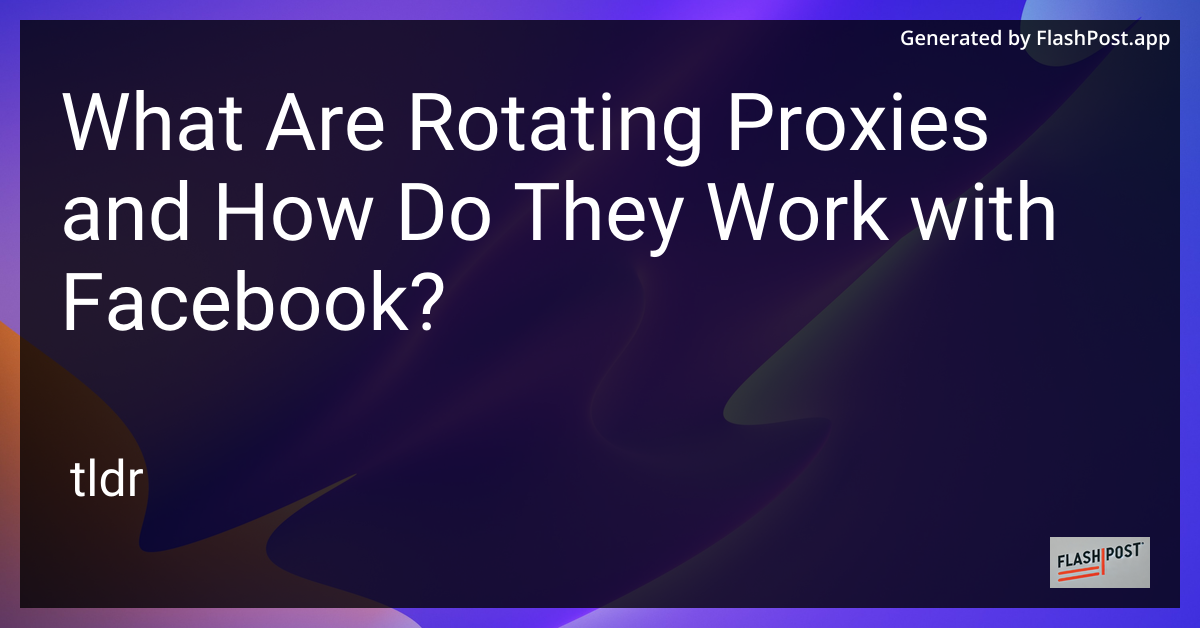
In the digital age, privacy and data protection on platforms like Facebook have become paramount. One of the tools technology enthusiasts leverage for anonymity online is rotating proxies. But what exactly are rotating proxies, and how do they enhance operations on Facebook?
Understanding Rotating Proxies
Rotating proxies are a type of proxy server configuration that assigns a new IP address for each connection request. This is different from VPNs and static proxies, which use a single IP address for all requests. Rotating proxies shuffle IP addresses, thus making the user’s web traffic appear as though it's coming from different locations.
How Do Rotating Proxies Work?
Rotating proxies function by cycling through a pool of IP addresses. Each request sent to a web server, such as Facebook's, originates from a different IP. This is beneficial for web scraping, avoiding rate limits, and maintaining anonymity.
When connected to Facebook:
- Anonymity: Your activities appear organic as each request seems to come from a different user.
- Avoidance of Bans: Using multiple IPs reduces the risk of being banned by Facebook since the activity is dispersed across numerous IP addresses.
- Enhanced Scraping: Those involved in data collection can pull information from Facebook without triggering its security protocols.
Benefits of Using Rotating Proxies with Facebook
Using rotating proxies with Facebook provides several advantages:
- Automation Stable: If you're automating actions or using bots, rotating proxies help in maintaining sessions without disruptions.
- Geo-targeting: You can appear as though you're accessing Facebook from various parts of the world, which is useful for marketers and businesses analyzing regional interactions.
Challenges and Considerations
While using rotating proxies can be beneficial, there are challenges to consider. Ensuring compliance with Facebook's terms of service is crucial. Misuse, especially for unauthorized data scraping, can lead to intellectual property issues.
Also, selecting a reliable proxy provider is key to maintaining fast and secure connections without leaving a digital footprint.
Conclusion
In conclusion, rotating proxies are instrumental in maintaining online anonymity and conducting intricate operations on platforms like Facebook. As the digital frontier evolves, so do use cases, prompting innovations like the future proxy pattern use cases.
For those keen on expanding their digital toolkit, whether for Facebook or other platforms like TikTok, understanding and utilizing rotating proxies can offer robust solutions to modern challenges in online navigation.